Search
Remove Ads
Advertisement
Summary 
Loading AI-generated summary based on World History Encyclopedia articles ...
Search Results
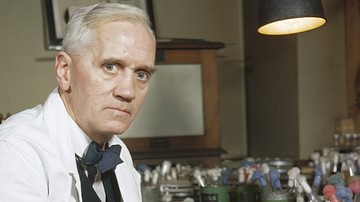
Article
Discovery of Penicillin
The age of antibiotics began in September 1928, with the discovery of penicillin by Alexander Fleming (1881-1955), then a professor of bacteriology at St. Mary's Hospital in London. Previously there were no effective treatments against a...
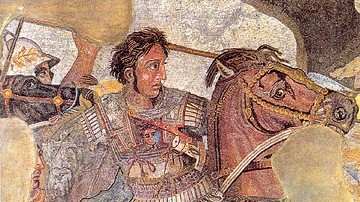
Definition
Alexander the Great
Alexander III of Macedon, better known as Alexander the Great (l. 21 July 356 BCE – 10 or 11 June 323 BCE, r. 336-323 BCE), was the son of King Philip II of Macedon (r. 359-336 BCE) who became king upon his father's death in 336 BCE and then...

Video
How Alexander Fleming Discovered Penicillin
Alexander Fleming was a Scottish doctor and microbiologist who discovered the world’s first effective antibiotic: penicillin. This discovery revolutionized medicine, and has been described as the single greatest victory ever achieved over...

Article
Alexander the Great: A Case Study in Martial Leadership
History is not predictable; in many ways it can take on a life of its own. But sometimes, an individual's sheer presence is enough to bend history to his will. One such individual was Alexander the Great. Through his conviction, vision, mental...

Image
Professor Alexander Fleming
Synthetic production of penicillin by Professor Alexander Fleming, holder of the Chair of Bacteriology at London University, who first discovered the mould penicillin notatum, in his laboratory at St Mary's, Paddington, London (1943). Imperial...
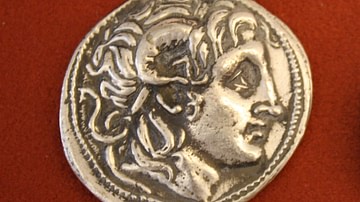
Article
Alexander the Great as a God
The age-old concept of the “divine right of kings” allowed that a country's ruler received his or her power or authority from God. However, few, if any, were delusional enough to actually believe themselves to be a god. An exception to this...

Video
Penicillin: From Fleming to the Pharmacy
Penicillin's discovery by Alexander Fleming in 1929 gets a lot of hype as the advent of antibiotics. But in reality, Fleming was just one part of the story. A team from Oxford University led by Howard Florey, in partnership with the Northern...
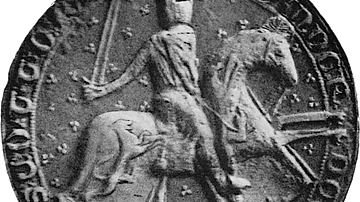
Definition
Alexander III of Scotland
Alexander III of Scotland reigned from 1249 to 1286 CE. Succeeding his father Alexander II of Scotland (r. 1214-1249 CE) at the age of eight, the young king's early reign was blighted by rivalries between his nobles, a situation made more...
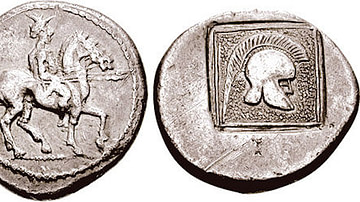
Definition
Alexander I the Philhellene
Alexander I of Macedon, also known as Alexander I the Philhellene ('friend of the Greeks') or 'The Wealthy', was king of ancient Macedon from around 498 to 454 BCE. He is known for the role he played in the second Persian invasion of Greece...
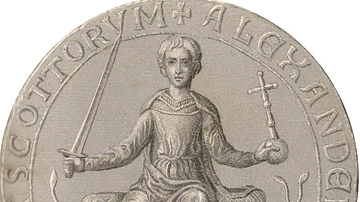
Definition
Alexander II of Scotland
Alexander II of Scotland reigned from 1214 to 1249 CE. Succeeding his father William I of Scotland (r. 1165-1214 CE), Alexander supported the northern barons in England against the unpopular King John of England (r. 1199-1216 CE) and so contributed...